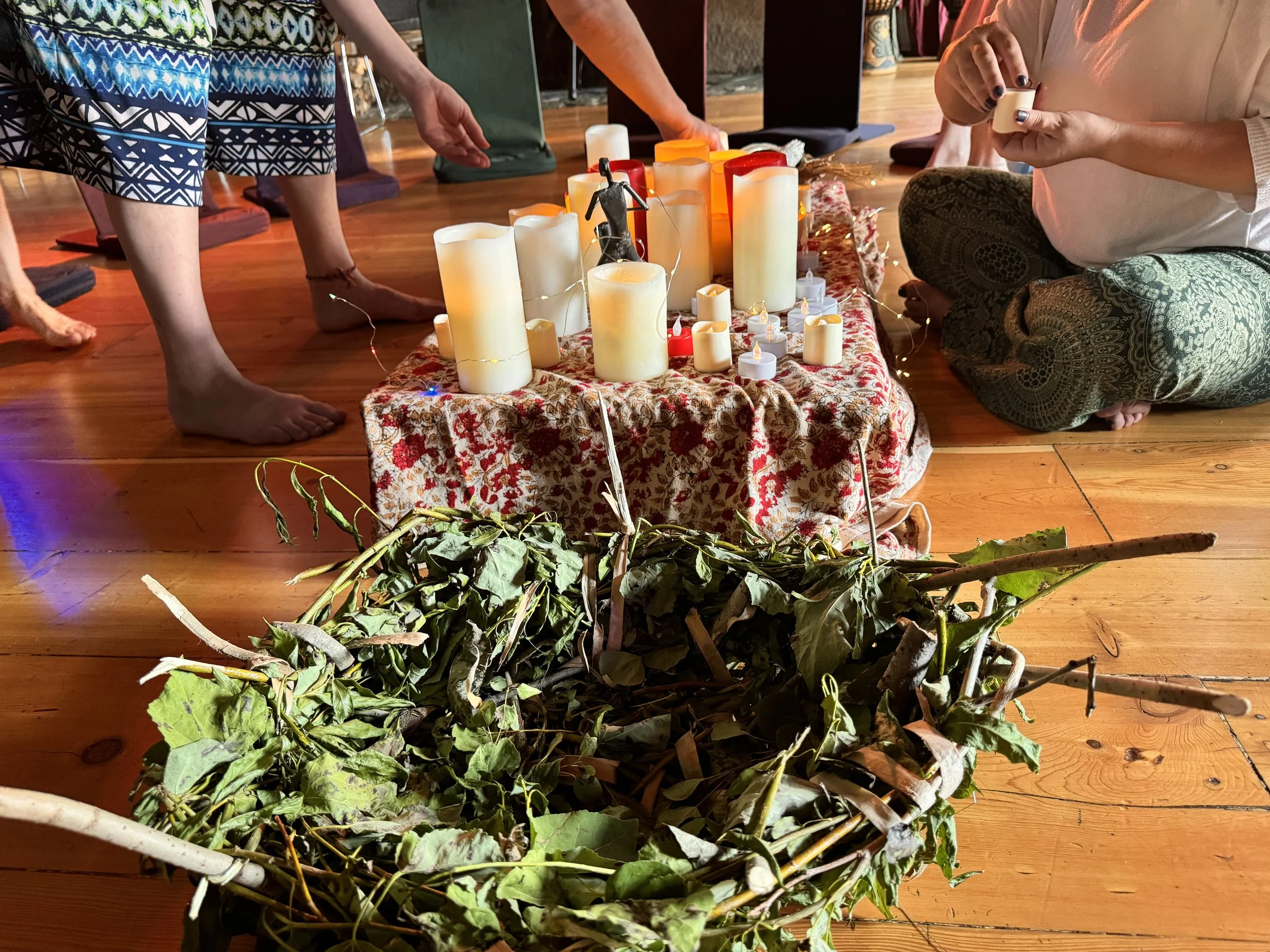Sometimes wisdom arrives long before it’s fully understood. A line from a sacred text, a phrase from a teacher—it lingers at the edges, waiting. And then, in a moment of difficulty or overwhelm, it quietly reappears. Not to fix anything, exactly, but to help light the way.
Lately, a few such teachings have been resurfacing in conversations with friends and students. Each comes from a different tradition, but they seem to echo one another—and speak to what it means to stay engaged in the world without being swallowed by it.
From the Bhagavad Gita, there’s this:
“You have a right to perform your prescribed duties, but you are not entitled to the fruits of your actions.”
It’s a call to act—clearly, and with integrity—but without clinging to the result. To do the work that’s ours to do and release the illusion that we can—or should—control the outcome. This one’s hard.
The Buddha arrived at a similar truth through lived experience. Born into royalty, he was sheltered from suffering and surrounded by pleasure and luxury. That comfort fell apart when he saw the reality of aging, illness, and death. In response, he renounced it all and pursued extreme asceticism, believing that denial and discipline might bring freedom. He nearly died in the process. And it was only after letting go of both extremes—indulgence and deprivation—that he discovered the Middle Way: a path of presence, compassion, and balance. Not a retreat from the world, and not full immersion in its pain—but a steady engagement with it, grounded in awareness and care.
There’s also a teaching from Jewish tradition that continues to surface, often in unexpected moments:
“You are not obligated to complete the work, but neither are you free to desist from it.” —Pirkei Avot 2:16
Pirkei Avot, or “Ethics of the Fathers,” is a collection of wisdom sayings from early rabbinic teachers—a kind of moral and spiritual handbook passed down through generations. This particular line acknowledges a simple, often difficult truth: the work of repair and justice and care is far bigger than any one person. And yet, that doesn’t mean we’re off the hook. We’re still called to show up and do our part.
These teachings don’t arrive as a set of instructions exactly. They seep in slowly—through practice, through reflection, and often through struggle. They don’t erase the complexity of the world, but they offer a way to be with it.
Balance may be less about a destination than a conversation—a back-and-forth between caring deeply and knowing when to rest. Between engagement and letting go. Between what’s possible and what’s enough.
Sometimes, wisdom arrives disguised as a story.
It’s this quiet trust in the enduring value of wisdom traditions that shapes so much of what we explore at The Mindful Unplug retreat. This summer, that will include sharing a sacred retelling of the Ramayana—an ancient epic rich with symbolism, devotion, and complexity. The story asks something of us: to set aside our modern critiques for a time and listen as we might to a dream, a myth, or a poem. Some parts may feel foreign or outdated. That’s okay. Rather than measure it by contemporary standards, we’ll approach it with curiosity and open hearts, inviting whatever insight it might wish to offer—gently, in its own way.
Maybe wisdom just means remembering we’re not alone in trying to find that balance. Others have been here before. And they left a few lanterns for us to find when the path gets dark.







